Mark Zuckerberg, CEO of Meta, recently sent ripples through the tech world with an announcement – Meta AI’s Llama 3 is coming to your favorite apps.
This news begs the question: how exactly will this powerful AI tool transform the way we interact with our daily digital companions?
Let’s explore the potential of Meta AI in WhatsApp, Instagram, and Facebook while explaining how to access and try out Llama 3, the engine behind this promising AI.
Renewed Meta AI is now officially available
Meta first introduced a limited version of Meta AI last year, but its capabilities paled in comparison to rivals like Google Gemini and OpenAI’s infamous ChatGPT.
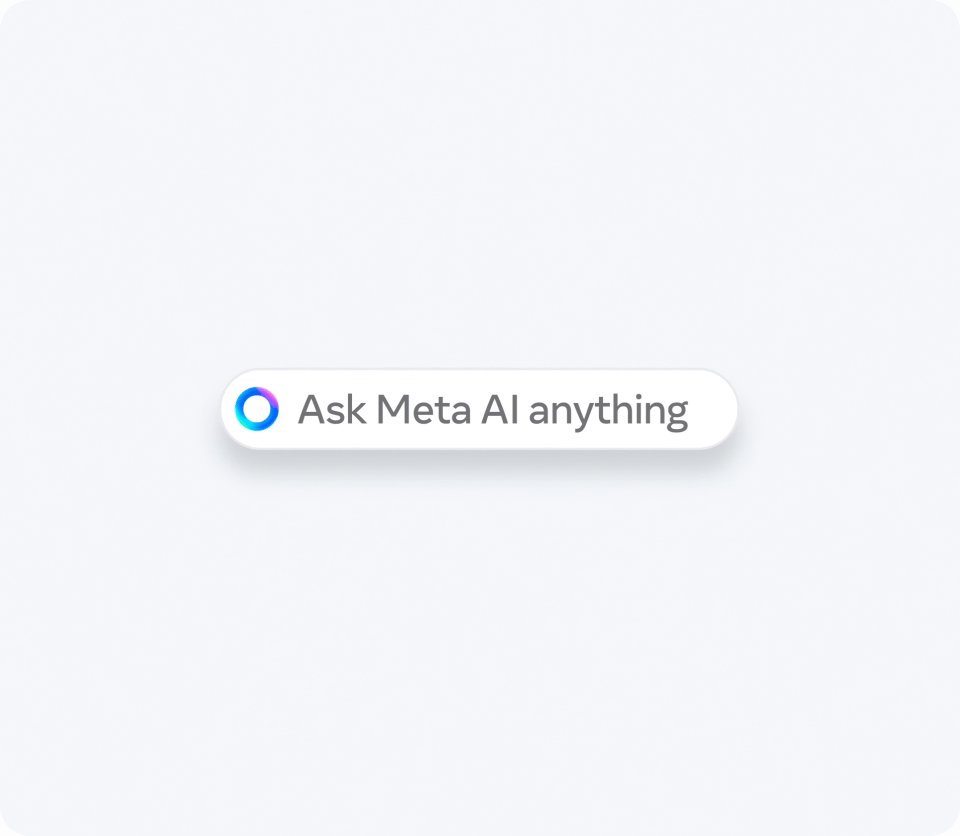
However, the integration of Llama 3 marks a game-changer. Benchmark tests suggest Meta AI with Llama 3 at its core may outperform other top AI models in areas like translation, dialogue generation, and complex reasoning.
Zuckerberg explains:
“We’re upgrading Meta AI with our new state-of-the-art Llama 3 AI model, which we’re open sourcing. With this new model, we believe Meta AI is now the most intelligent AI assistant that you can freely use.”
Meta’s AI boasts two key strengths:
- Integration: Unlike competitors, Meta AI is directly accessible within popular Meta apps like Facebook, Instagram, WhatsApp, and Messenger, offering billions of users convenient access.
- Search engine neutrality: While other assistants might rely solely on one search engine’s algorithms (e.g., Google Search for ChatGPT), Meta AI utilizes both Google and Bing, potentially reducing bias.
What can you do with the new Meta AI?
Meta AI brings a suite of functionalities directly to your fingertips within familiar Meta apps like Facebook, Instagram, WhatsApp, and Messenger.
- Need to search the web for something? Meta’s AI can handle it.
- Looking for a new restaurant or trying to book a flight? Meta’s AI can help you find the best options.
- Stuck on a complex concept? Meta’s AI can clarify it for you.
On Facebook, Meta AI goes a step further. It can analyze your feed, allowing you to ask questions about the content you see. Imagine seeing a breathtaking picture of the Northern Lights and wanting to know the best time to see them yourself. Meta’s AI can answer that question right there.
It can also personalize your experience by curating video feeds based on your preferences.
Feeling like a workout? Ask for fitness reels. Want some laughs? Meta AI can create a personalized comedy video playlist just for you.
Meta AI doesn’t stop at information and content curation. It also boasts a powerful image generation tool called Imagine. Imagine allows you to create unique images based on your text descriptions. This feature is currently available on WhatsApp, Instagram, and Facebook.
There’s even a beta version offering an advanced real-time experience, where the image updates as you type, letting you see your ideas come to life instantly.
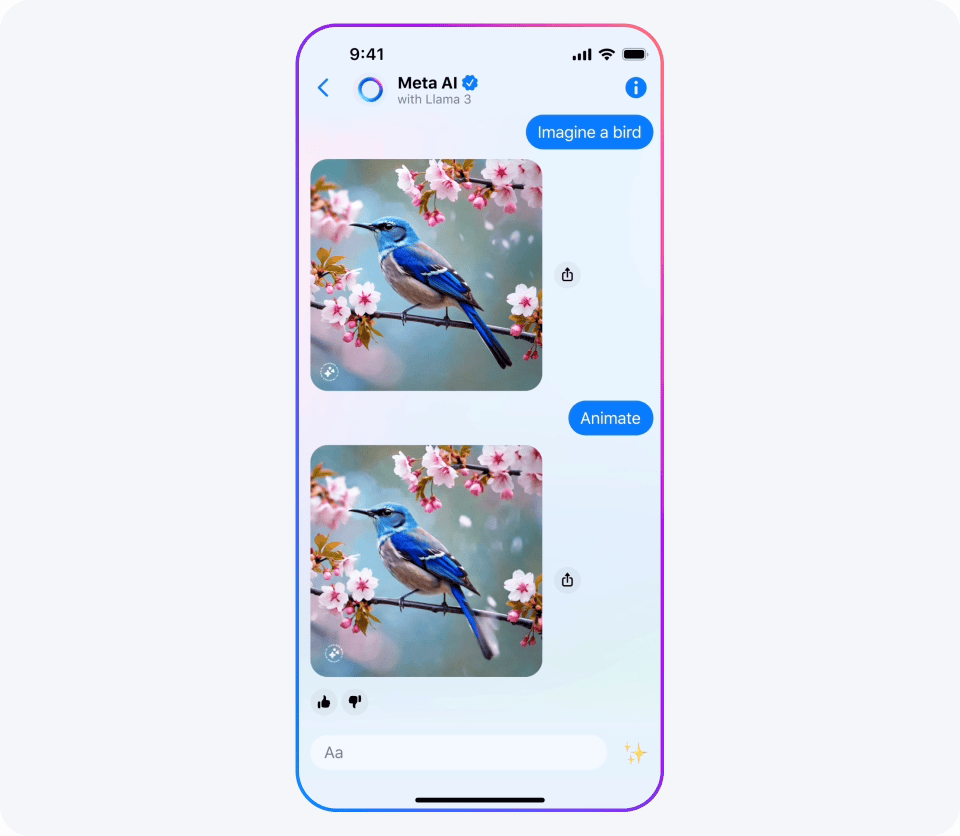
How to access Meta AI via WhatsApp, Instagram and Facebook
WhatsApp:
- Directly access Meta’s AI through a dedicated chat window. Look for “Meta AI” in your chat list, similar to how you find individual contacts.
- Use the search bar at the top of your chats. Type “@meta ai” to start a conversation.
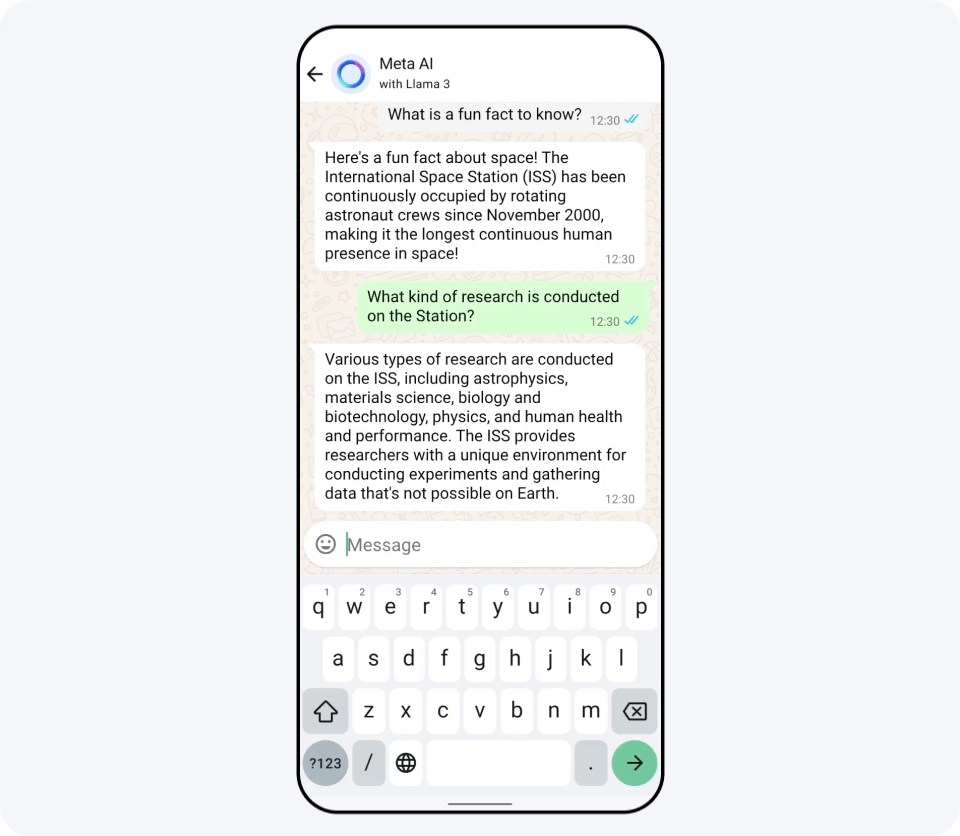
Instagram:
- Swipe left to access your Direct Messages (DM) page.
- Open any chat and access the chatbot by typing “@Meta AI”
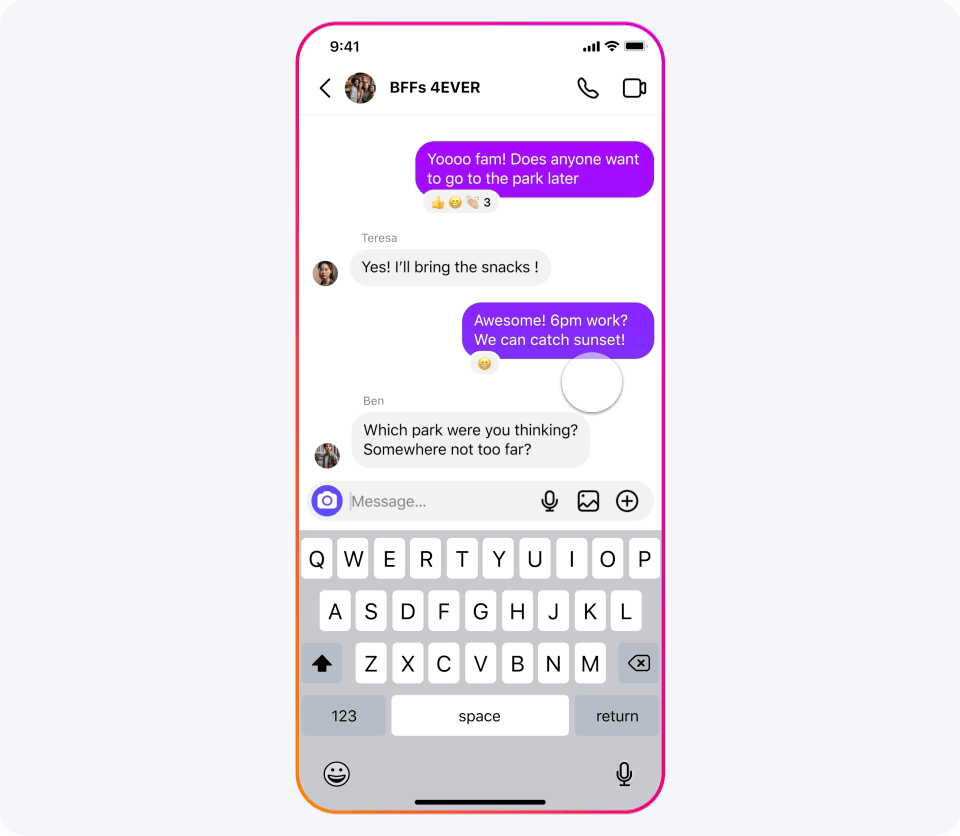
Facebook:
- Meta AI can be found within the search bar functionality.
- You might see prompts suggesting how to use Meta AI directly below the search bar and posts on your feed.
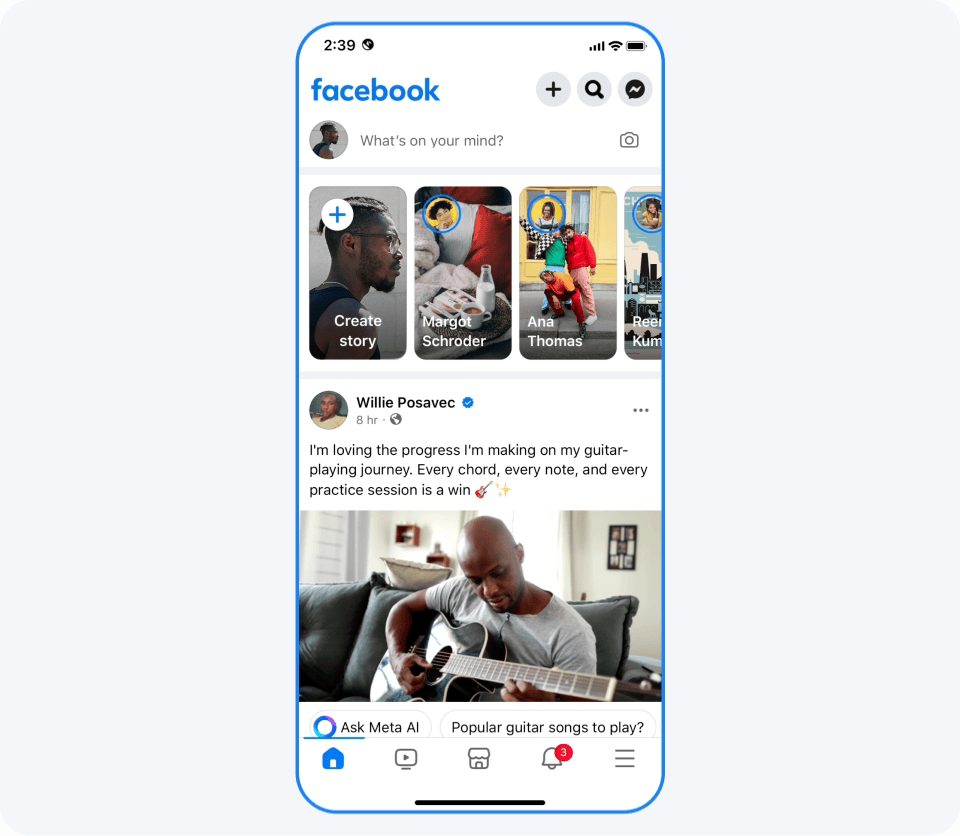
Also available on your web browser
Beyond its presence within Meta apps, Meta’s AI can also be accessed directly from your web browser. Simply head over to Meta AI’s website to start interacting with Meta’s AI and explore its functionalities.
This provides an alternative access point for those who might not use Meta apps frequently or prefer a dedicated web interface.
At the time of writing, the renewed version of Meta’s AI is only available in English and accessible in the following countries:
- The US
- Australia
- Canada
- Ghana
- Jamaica
- Malawi
- New Zealand
- Nigeria
- Pakistan
- Singapore
- South Africa
- Uganda
- Zambia and Zimbabwe
Llama 3 shows promising benchmark results
Meta’s blog post dives deep into the technical details behind Llama 3, highlighting its impressive performance on benchmark tests.
Compared to competing models (Claude Sonnet, Mistral Medium, GPT-3.5), Llama 3 excels in real-world scenarios. This is particularly true for the 70B parameter model with instruction-fine-tuning. Human evaluations across various tasks like reasoning, code generation, and summarization support this claim.
Llama 3 is trained on a massive dataset of over 15 trillion tokens, seven times larger than its predecessor. This data curation includes a focus on high quality, with filtering pipelines using various techniques to ensure data integrity. Notably, 5% of the data caters to upcoming multilingual functionalities.
Scaling plays a crucial role in Llama 3’s development. Meta researchers observed that model performance continued to improve even after being trained on significantly more data. They explored optimal data mixes and scaling laws to maximize performance while keeping training efficient.
Training these colossal models requires substantial computing power. Meta utilized a combination of parallelization techniques and custom-built GPU clusters to achieve over 400 TFLOPS per GPU utilization. Additionally, they implemented an advanced training stack for error detection and maintenance, leading to a 95% effective training time.
A three-horse race
With Meta’s AI joining the fray, the battle for AI supremacy becomes a three-way race. Each assistant offers unique strengths and weaknesses:
- ChatGPT: Strong text generation and may be familiar to users already comfortable with OpenAI products.
- Gemini: Known for detailed and nuanced responses, particularly when dealing with complex questions.
- Meta AI: Offers convenient access within popular apps and avoids search engine bias.
The future of AI assistants will depend on how each platform addresses user needs and continues to evolve its capabilities. This competition is sure to benefit users as each company strives to deliver the most intelligent and user-friendly AI experience.
Featured image credit: Meta






